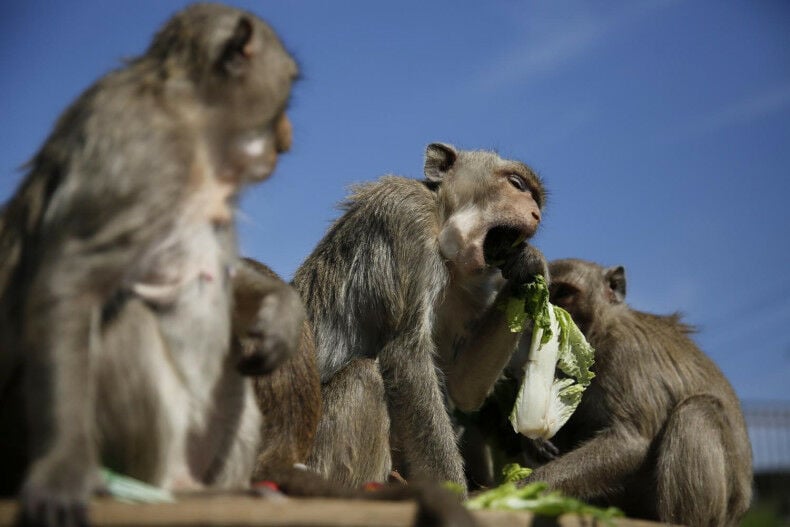Thai agency may include monkeys in wildlife compensation scheme

The Thai Department of National Parks, Wildlife, and Plant Conservation (DNP) is contemplating the inclusion of monkeys in its wildlife compensation programme.
This consideration arises following an incident where a woman suffered injuries from a macaque attack, leading her to file a police complaint to secure compensation for her medical expenses.
The victim, Arikanta Kanchanasinmetha, reported the incident at Tha Hin police station in Lop Buri’s Mueang district yesterday. She sought to formalise her complaint to procure an official document, that she could use to claim medical reimbursement.
The specific agency or office she intends to apply to for the reimbursement remains undisclosed. Her younger brother expressed his disbelief on social media.
“How come we have reached the point of registering a complaint with monkeys involved?”
According to the complaint, Arikanta was accosted by a group of macaques around 7.30pm on Wednesday while walking in Mueang district. One of the monkeys jump-kicked her in the back, causing her to fall and lose her food. The fall resulted in a dislocated knee and other minor injuries. Rescue volunteers quickly transported her to Lop Buri Hospital, where she received treatment and was later discharged.
“I was about to get into my car and all of a sudden I found myself lying in the street. I told my brother that I fell down and could not get up.”
Phadet Laithong, the director of the Wildlife Conservation Office of the DNP, stated that while the victim can file a complaint with the DNP, the current compensation policy only covers damages inflicted by elephants and gaurs.
However, in light of the recent incident, authorities are mulling over the macaques’ inclusion in the Wildlife Conservation and Protection Act 2019. This inclusion would enable victims of monkey attacks to be eligible for compensation payments, reported Bangkok Post.
Monkey-related problems have been a recurring issue in Lop Buri for several years. A recent study revealed a wild population of 5,709 monkeys in the province last year.
In an attempt to manage the escalating monkey problem, authorities have embarked on a sterilisation plan aimed at reducing their numbers.
Latest Thailand News
Follow The Thaiger on Google News:


























